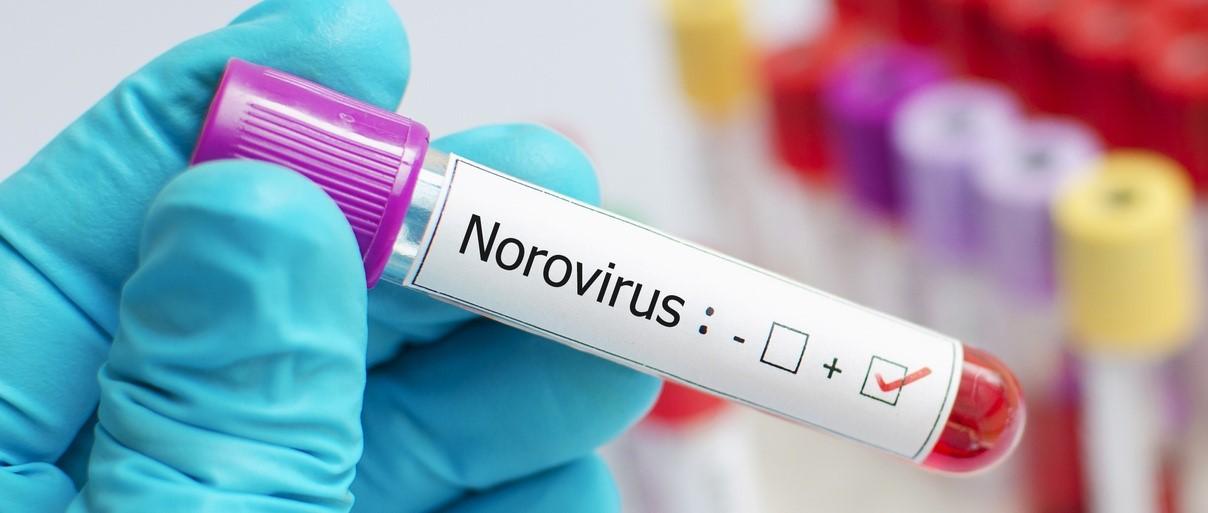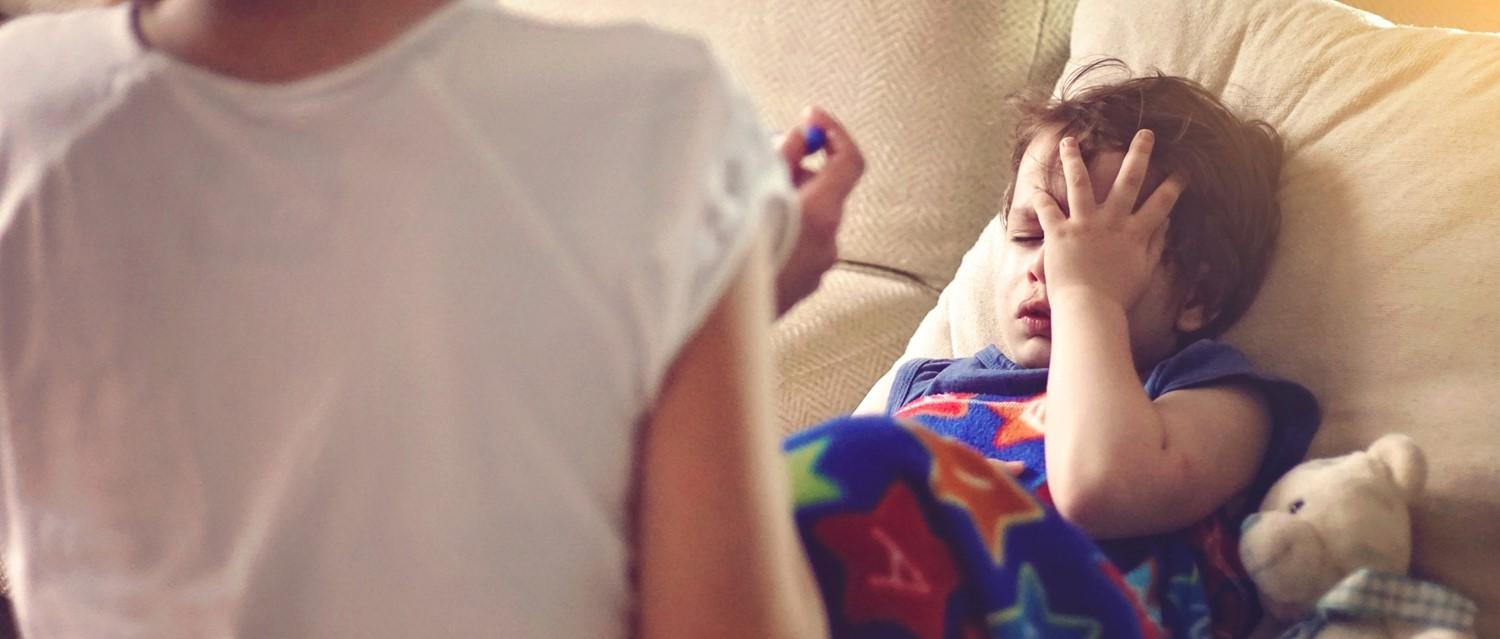
Norovirus - when to see a doctor
Stomach bug
Peer reviewed by Dr Krishna Vakharia, MRCGPLast updated by Victoria RawLast updated 13 Nov 2024
Meets Patient’s editorial guidelines
- DownloadDownload
- Share
- Language
- Discussion
As winter approaches, viruses spread between people more easily. If you have stomach bug symptoms, there's a good chance you've caught norovirus - one of the most common and contagious viruses in the UK. But at what point does norovirus become serious enough to see a doctor?
In this article:
Continue reading below
Norovirus treatment at home
Norovirus, also known as the winter vomiting bug, is a name for a group of viruses that can cause gastroenteritis - an infection of the gut. It can make both adults and children very ill for 2 - 6 days, but it usually clears up on its own and can be managed at home.
Dr Rosmy Barrios describes the common symptoms of norovirus.
"The first signs of norovirus typically develop within 1 - 3 days of becoming infected," she says. "In most cases, people have nausea, being sick (vomiting), a high temperature, and - or either - diarrhoea with watery poo."
While these symptoms are unpleasant, they are usually mild enough to treat at home. Advice on how to treat norovirus is straightforward.
Dr Hussain Ahmad explains: "Norovirus treatment at home involves drinking lots of fluids to avoid dehydration. It typically passes within three days of contracting the virus."
He adds that you should also eat as normally as possible.
When to see a doctor for norovirus
You should see a doctor for norovirus if your symptoms are so severe that you are dehydrated and it doesn't stop when you drink lots of water or your symptoms last for more than a few days.
It's important you get immediate medical attention if:
You have signs of serious dehydration - this includes having a very pale complexion, feeling drowsy, dizzy, or very weak, or not feeling fully conscious - where you are awake and in full control of your basic reflexes.
Your sick is bloody.
There is blood in your poo.
Your temperature is 40°C or higher.
You have very bad stomach pain.
It's usual for diarrhoea to last a little longer, but you should consult your doctor if this hasn't started to settle after three or four days - sooner if you are going to the toilet a lot through the day and the night. If you're too unwell to go to your local doctor's surgery, or you are not sure the visit is needed, arranging an online consultation may be a good option - even if it's just to put your mind at ease.
While there's no specific medicine that can be prescribed for norovirus, doctors can check for rare complications - such as inflammation in other parts of your body - and help treat dehydration, which if left can cause serious problems.
Other times adults should see a doctor
There are certain circumstances where you should seek medical attention for norovirus, especially if you're worried.
It's recommended that you see your doctor if:
You are an older person.
You caught your norovirus infection abroad.
You have an underlying health problem and you're worried norovirus may affect your management of it. For example, this could be diabetes, kidney problems, or epilepsy.
You have a weakened immune system. This could be due to a health condition, like HIV infection, or caused by certain treatments, such as chemotherapy or immunosuppressant drugs.
You are pregnant.
These scenarios do not guarantee you'll be seriously affected by norovirus, but if you're worried it's always best to be safe.
Norovirus in children under five
It's one thing experiencing the severity of your own symptoms, and another trying to guess how bad norovirus is for your child. It can take slightly longer for a standard bout of norovirus to disappear in children. Vomiting may last up to three days, and diarrhoea up to seven days. If either last longer, you should take them to the doctor.
Children under five years aren't usually able to give you a clear idea with words, but Ahmad says there are things you can do to work out if a visit to the doctor is needed.
"You should monitor how much fluid your child is drinking, how often they are sick, and how often they pee.
Young children need to be seen by a doctor urgently in the nearest A&E if:
They are unable to keep fluids down.
They are not peeing - less than two wet nappies in 24 hours, or more than 12 hours since they last went for a pee in older children.
They are showing signs of dehydration such as a dry mouth, pale skin, sunken eyes, or unusual tiredness.
The same exceptional circumstances apply to children as they do adults. For example, a visit to the doctor is advised if they have an underlying health problem, picked up the infection abroad, or have a weakened immune system.
Norovirus in infants
If your child is under six months old, it's always worth a visit to the doctor as soon as you suspect they have norovirus - or any other type of infection or illness. This is to safely manage the chance of dehydration.
According to Dr Ahmad, there are also important signs that your baby is becoming dehydrated and needs immediate medical attention:
They are not willing to drink as much fluid as normal.
They are being sick after drinking.
They are producing fewer wet nappies than normal - fewer than two wet nappies in 24 hours.
Their fontanelle dips more than usual - this is the soft spot on your baby's head.
Continue reading below
Norovirus 2025 - what to expect this winter
Norovirus and other viral infections can survive and spread more easily in the colder months. This is why we always expect a peak in winter. However this winter, norovirus outbreaks have increased by 37%, compared to the average over last five years.
Catching norovirus isn't inevitable, and we can form habits that help protect us.
The Centers for Disease Control and Prevention recommends:
Washing your hands often.
Rinsing your fruits and vegetables before eating them.
Cooking shellfish thoroughly.
Staying at home when you're ill for two days after symptoms stop.
Avoiding preparing food for others when you're ill.
Patient picks for Gastroenteritis

Digestive health
How to avoid tummy bugs
We've all had them - those horrible bouts of sickness and diarrhoea. You'll usually recover with no ill effects within a few days - especially with these top tips. But how can you minimise the misery?
by Dr Sarah Jarvis MBE, FRCGP

Digestive health
What to eat when you have gastroenteritis
Should you eat with gastroenteritis or avoid food altogether? While it was once standard advice to starve when you have this stomach infection, health recommendations have changed in recent years. Experts now believe you should be guided by how hungry you feel. But, when it comes to gastroenteritis, there are certain foods you should keep away from.
by Amberley Davis
Continue reading below
Article history
The information on this page is peer reviewed by qualified clinicians.
Next review due: 13 Nov 2027
13 Nov 2024 | Latest version
9 Nov 2023 | Originally published
Authored by:
Amberley Davis

Ask, share, connect.
Browse discussions, ask questions, and share experiences across hundreds of health topics.

Feeling unwell?
Assess your symptoms online for free
Sign up to the Patient newsletter
Your weekly dose of clear, trustworthy health advice - written to help you feel informed, confident and in control.
By subscribing you accept our Privacy Policy. You can unsubscribe at any time. We never sell your data.